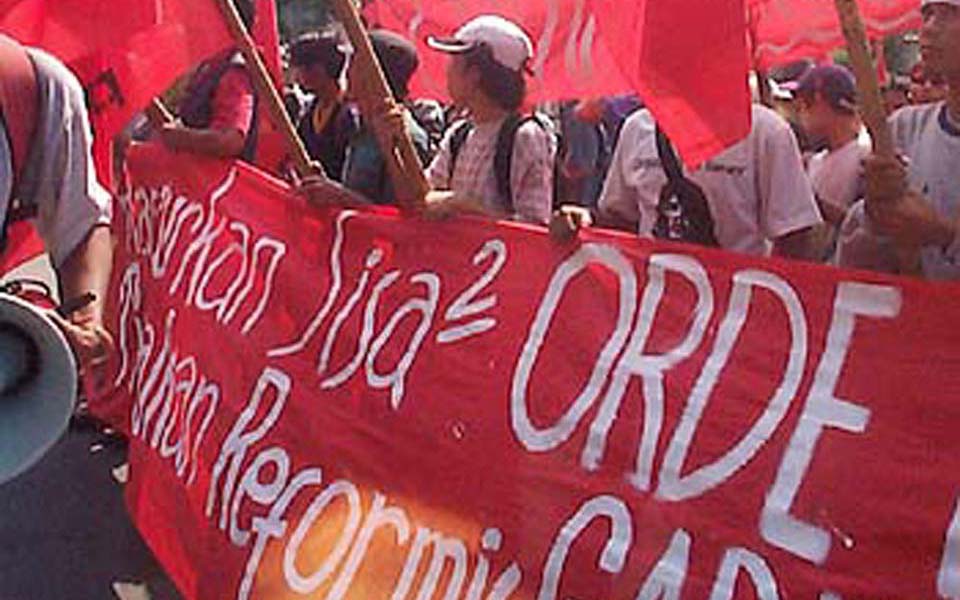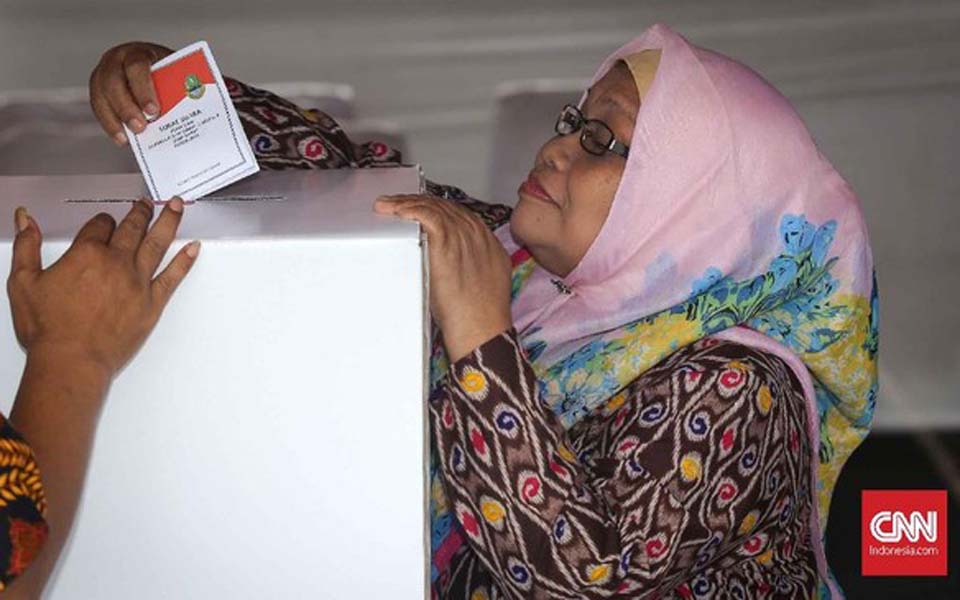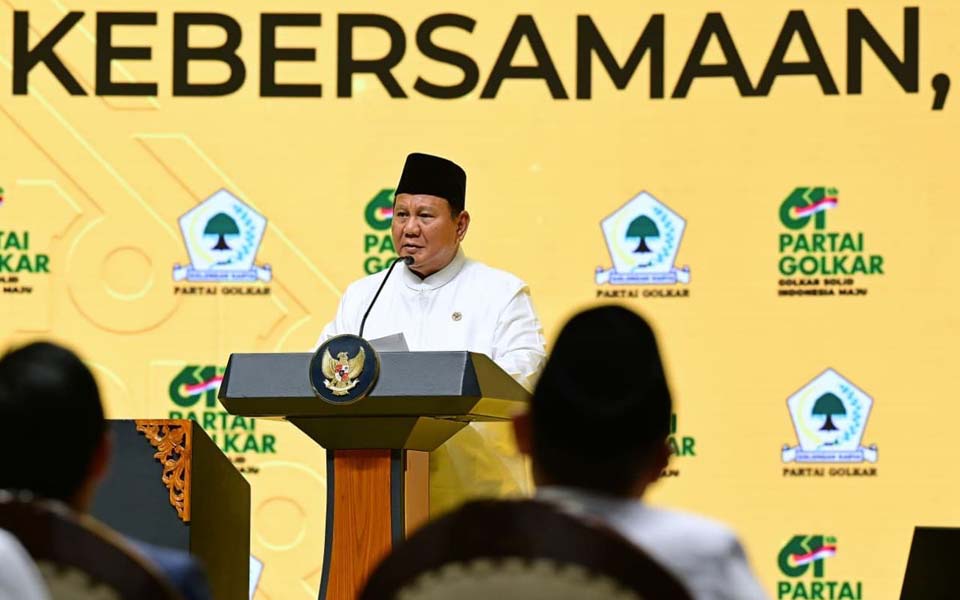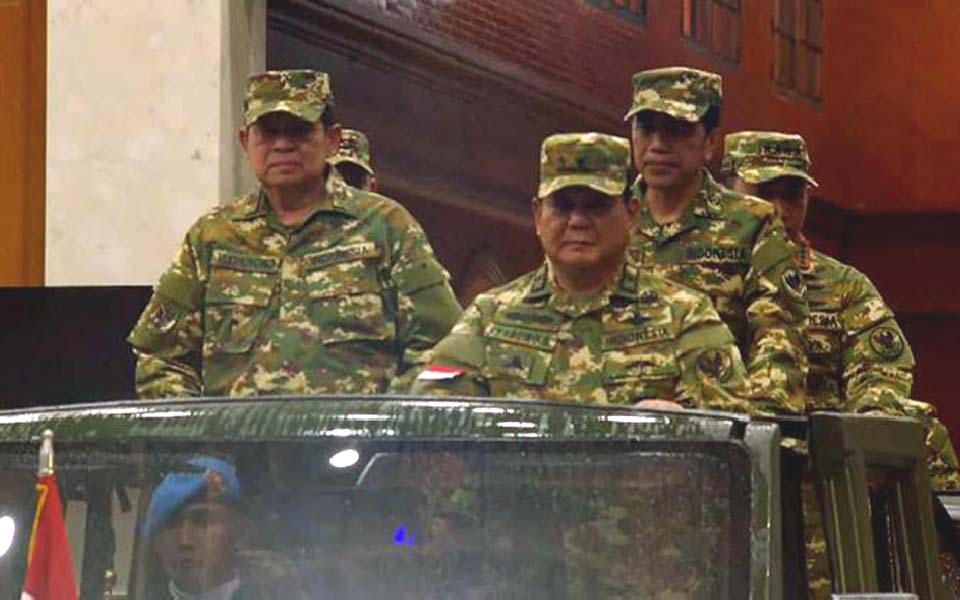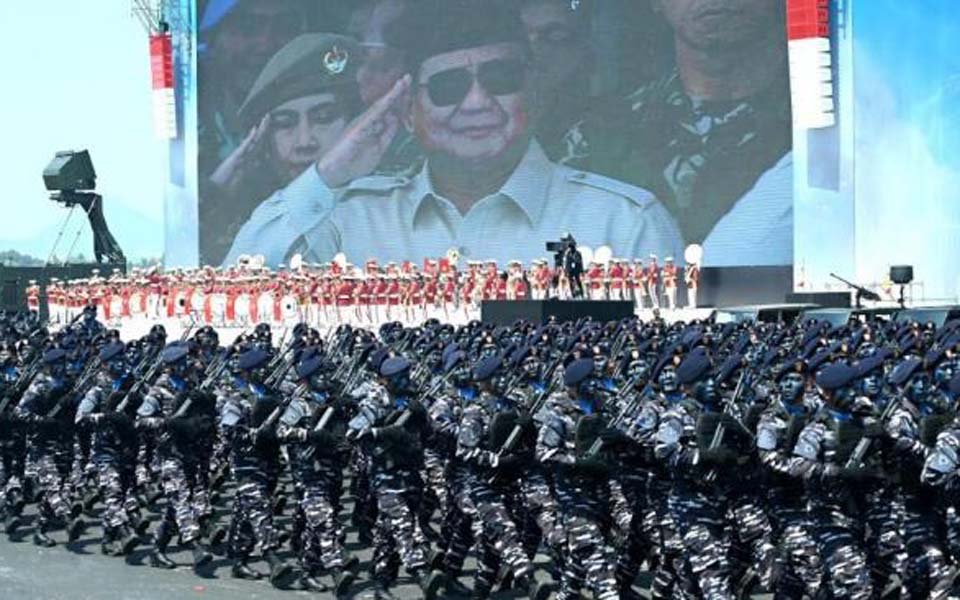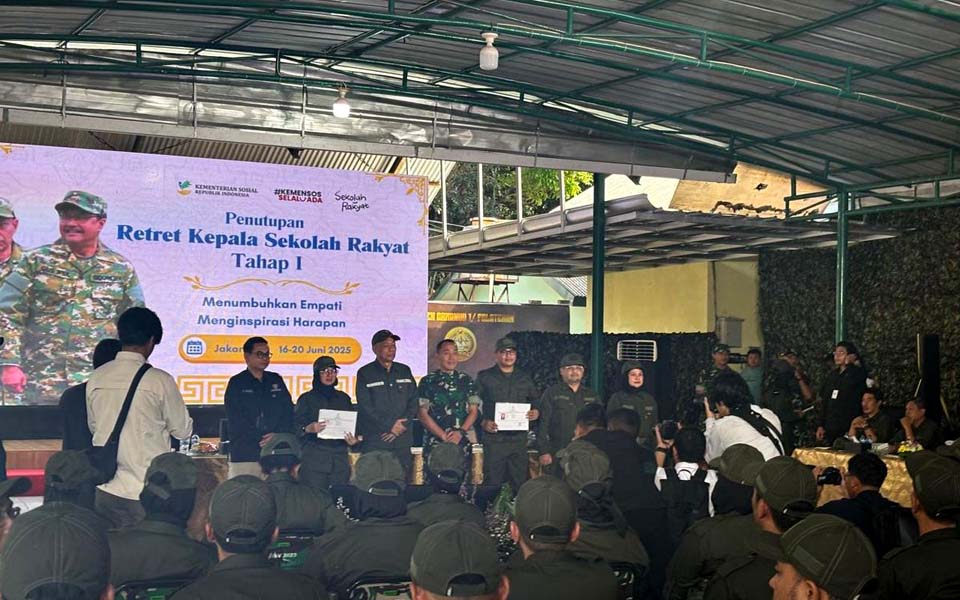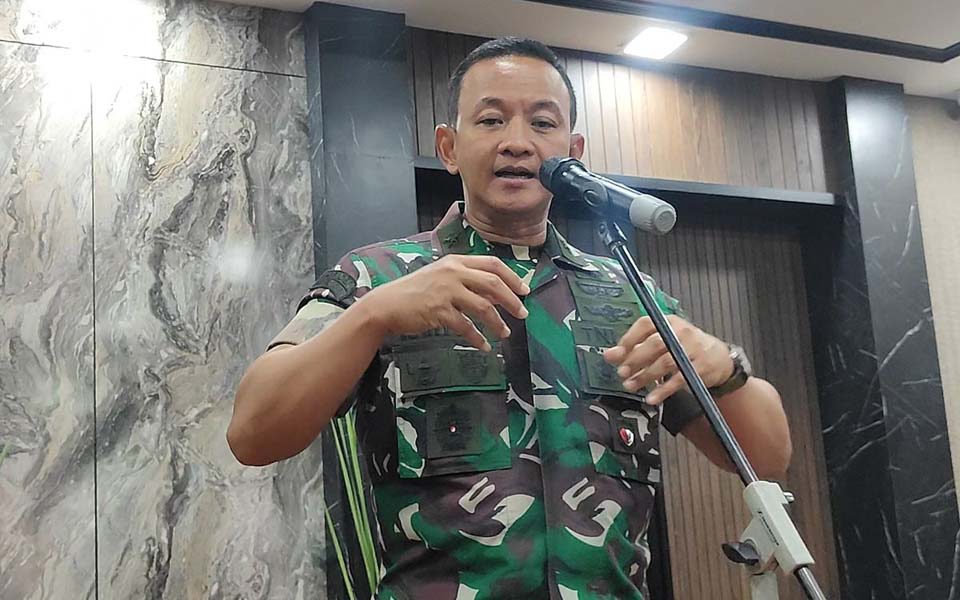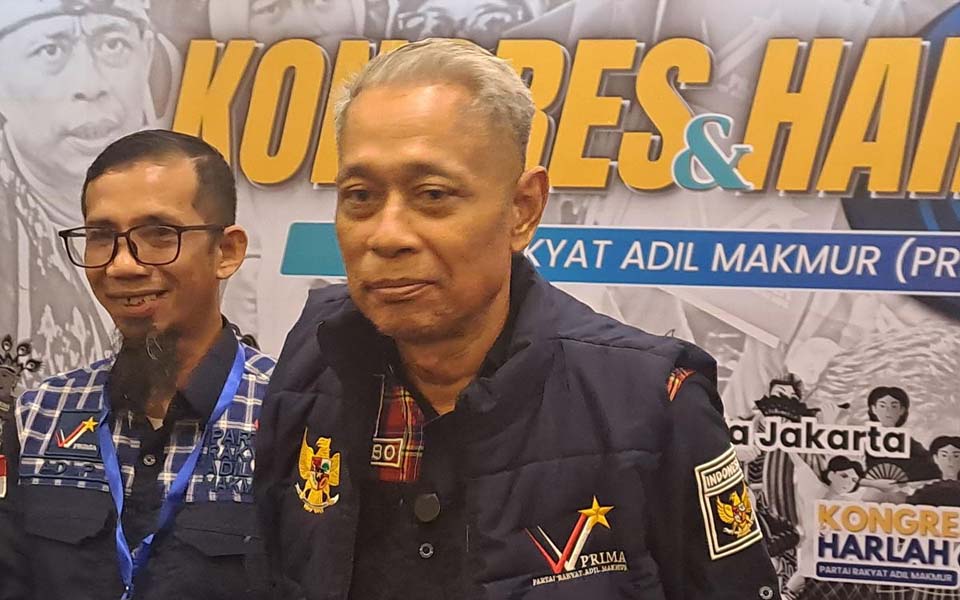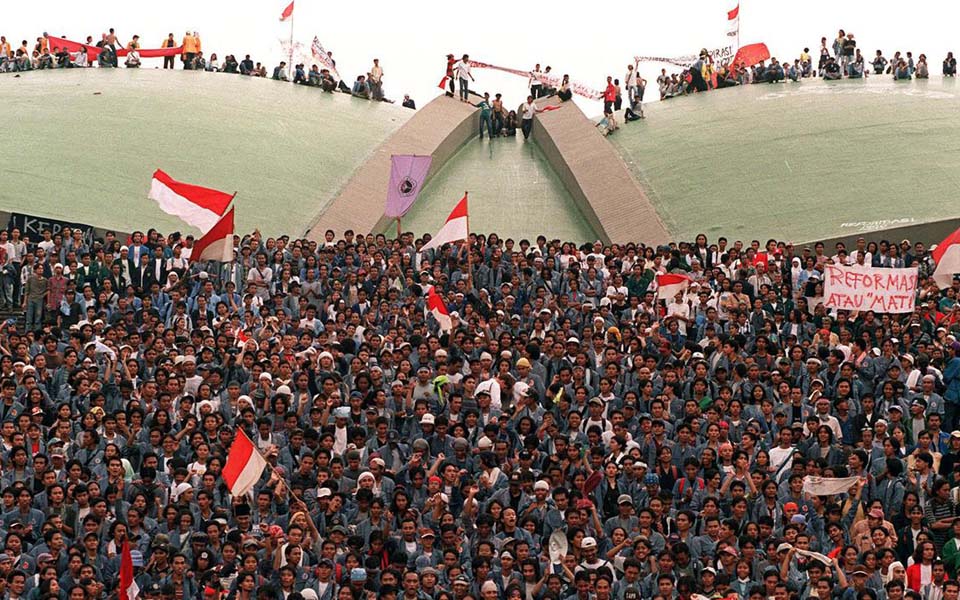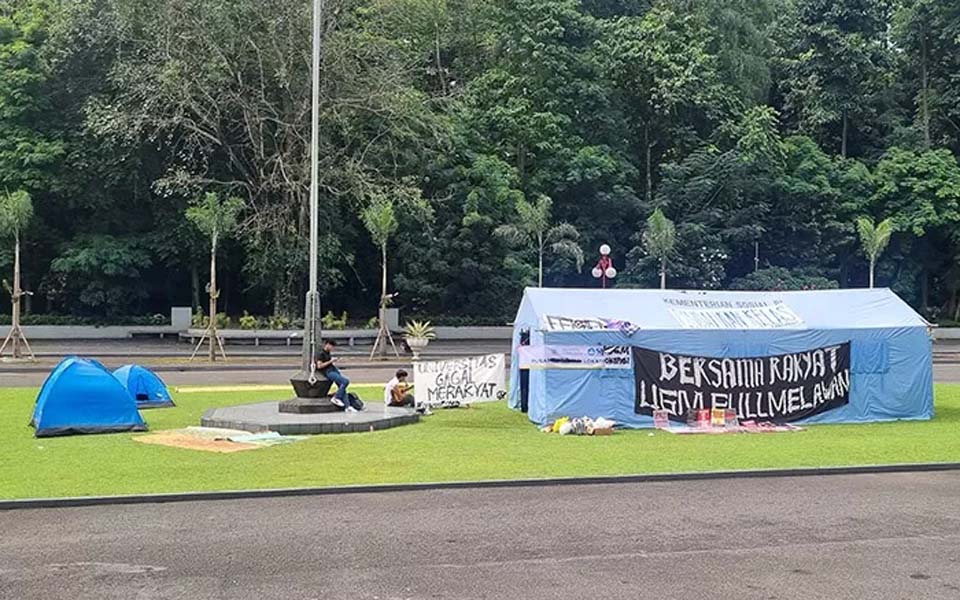Diyah Kusuwardhani, Jakarta – On July 3, or two days before the election of the next president on July 5, there will be a demonstration against militarism. A massive demonstration is to be held in Jakarta and accompanied by nation-wide actions.
This was announced by the Central Leadership Committee of the People’s Democratic Party (PRD) at a press conference at the Venezia Cafe at the Taman Ismail Marzuki arts centre on Jalan Cikini Raya in Central Jakarta on Thursday June 10.
“Over the next two to three days we will be facilitating the coming together of the democratic movement against militarism into one vehicle, that is the PRD, the Muhammadiyah Students Association (IMM), the Muslim Students Association for Reform (HMI-MPO), the Federation of Indonesian Migrant Workers (FOBMI), the Indonesian Environmental Forum (Walhi), the National Student League for Democracy (LMND) and the Action Study Circle for Indonesian Democracy (LS-ADI)”, said PRD general secretary Zely Ariane.
According to the general chairperson of the PRD, Yusuf Lakaseng, the nation-wide action is to be used to call on the public to oppose militarism. “Opposing militarism is not just campaigned for in the form of statements, but also in the form of mass mobilisations”, he said.
Mobilisations like this, for example, are needed in the July 27 case1, the Indonesian Democratic Party of Struggle needs to mobilise its masses so that the case is quickly resolved. “The July 27 case must be solved because this is a part of the democratic transition. [We] must ask that responsibility be taken for the crimes against humanity”, he said.
According to Ariane, there are a number of indicators of militarism which have surfaced recently. For example, the development of the territorial command structure2, the nationalisation of military businesses, the failure to try human rights violators and the packet of pro-military laws over which there is concern that they will be promulgated if a military presidential candidate become the president.
Ariane said she regrets that the campaign against militarism has tended to identify particular presidential candidates [since all of them have been pro-military]. Ariane even called on the public to golput [white movement, not marking the ballot paper] because she believes none of the presidential candidates have struggled for the needs of the ordinary people. (nrl)
Notes:
1. Following weeks of protests at the Indonesian Democratic Party (PDI) headquarters in Central Jakarta by pro-Megawati PDI supporters after the Suharto regime engineered Megawati’s removal as the party’s democratically elected chairperson, on July 27, 1966, paid thugs backed by the military attacked and destroyed the PDI offices resulting in the death of as many as 50 people. Popular outrage at the attack sparked several days of mass rioting and violent clashes with police. Many had hoped that with Megawati’s ascendancy to the presidency those responsible would be held accountable however Megawati and other leading party figures have publicly distanced themselves (refusing to attend annual commemorations) from the issue. Those who were eventually brought to trial in late 2003 have all been low ranking soldiers or civilians and have either been acquitted for lack of evidence or given light sentences. None of those believed to have organised or led the attack have been brought to trial.
2. The military’s territorial command structure mandates the deployment of military command posts and detachments at all levels of the civil administration: provincial, district, sub- district and village. This structure provides the organisational framework for the TNI to act as a political security force at all levels of society.
[Translated by James Balowski.]





